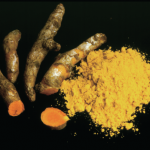Glucosamine & chondroitin
Glucosamine and chondroitin supplements are often sold in combination, more commonly for knee and hip osteoarthritis (OA), although data regarding their effectiveness have varied. Because these are prescription drugs in Europe, they have recommended therapeutic doses of 1,500 mg daily for glucosamine sulfate and 800 mg daily of chondroitin sulfate. You can find these supplements in different doses.
Additionally, several types of glucosamine are sold commercially in the U.S.: glucosamine hydrochloride (GH), glucosamine sulfate (GS) and crystalline glucosamine sulfate (cGS). They have varying bioavailability—with cGS the most and GH the least—and thus should not be considered equal.15
A recently published meta-analysis evaluating glucosamine sulfate and chondroitin sulfate in moderate knee and hip OA noted improvement in pain and function with chondroitin use and improvement in stiffness with glucosamine use, but no statistical benefit when used in combination in any of these outcomes.16 This meta-analysis was interesting in that it excluded trials with subtherapeutic doses of either supplement and included only those with the same formulations. Other systematic reviews have not come to the same conclusion, and use of these supplements overall remains controversial.
Although most research on chondroitin and glucosamine have been in hip and knee OA, the 2018 EULAR recommendations for hand OA included one to consider 800 mg of chondroitin daily for hand OA, based on one well-done trial. The EULAR recommendation included a caveat that more studies are needed.17
Overall, this debate is an old one and could be its own piece. For any of your patients who choose to try these supplements, discussing that data are inconclusive but attempting a trial with appropriate dose and formulation would not be unreasonable. However, patients should be aware that glucosamine and chondroitin can interact with medications, including warfarin, so a careful medication review would be needed.18
Cinnamon
Cinnamon gained popularity over the past several years due to its purported benefits in improving insulin sensitivity, fasting blood glucose, dyslipidemia and inflammation in diabetes.19 With its claimed anti-inflammatory effects in diabetes and adiposity, it is not surprising that cinnamon was eventually tried in inflammatory arthritis.
In a randomized double-blind control trial, 36 women with RA were given either placebo or 1 g of cinnamon (Cinnamomum burmannii) twice daily for eight weeks. Those who took the cinnamon were found to have significantly decreased tender and swollen joint counts and erythrocyte sedimentation rates (ESR) by the end of the trial.20


